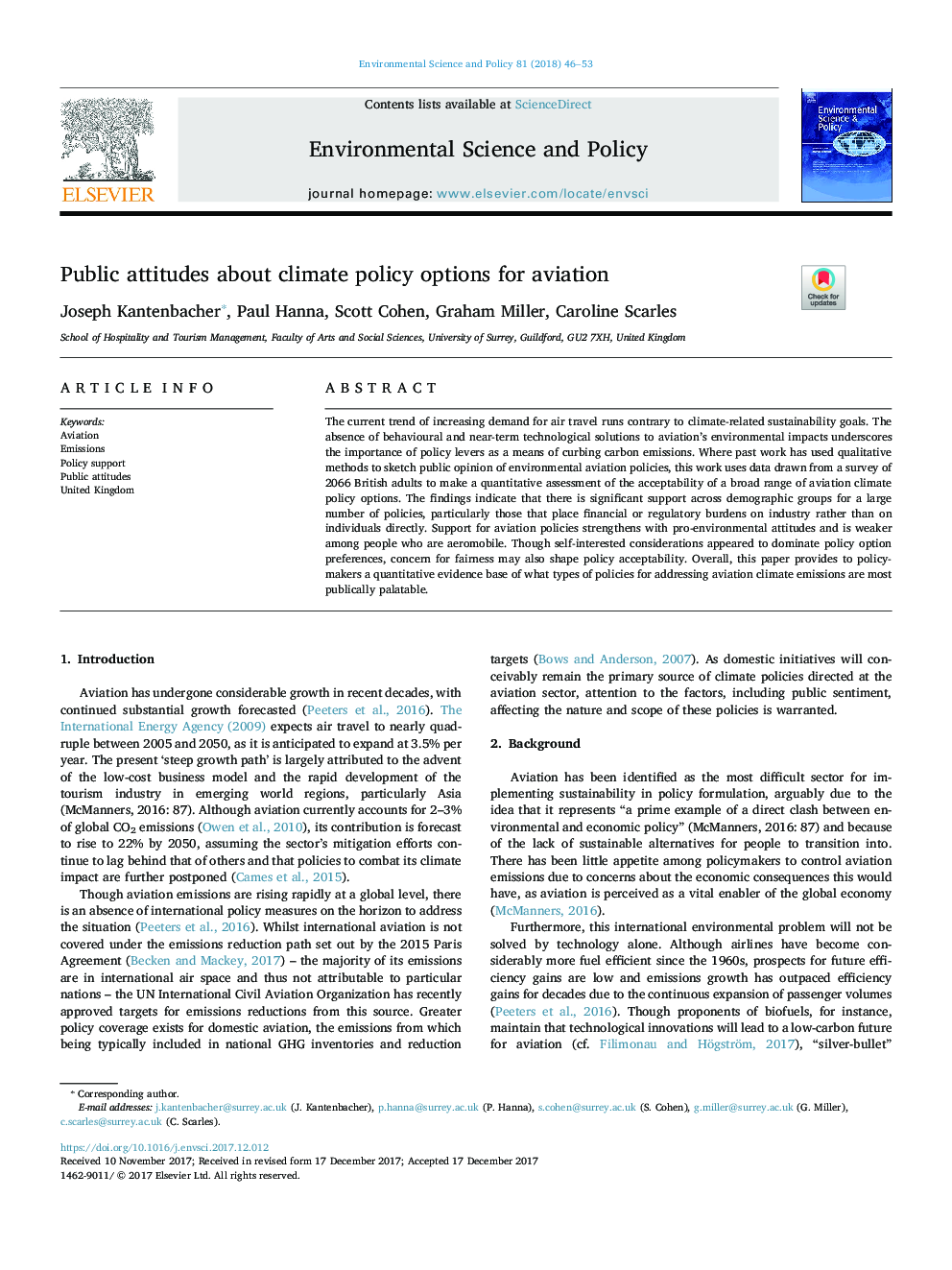| Article ID | Journal | Published Year | Pages | File Type |
|---|---|---|---|---|
| 7466214 | Environmental Science & Policy | 2018 | 8 Pages |
Abstract
The current trend of increasing demand for air travel runs contrary to climate-related sustainability goals. The absence of behavioural and near-term technological solutions to aviation's environmental impacts underscores the importance of policy levers as a means of curbing carbon emissions. Where past work has used qualitative methods to sketch public opinion of environmental aviation policies, this work uses data drawn from a survey of 2066 British adults to make a quantitative assessment of the acceptability of a broad range of aviation climate policy options. The findings indicate that there is significant support across demographic groups for a large number of policies, particularly those that place financial or regulatory burdens on industry rather than on individuals directly. Support for aviation policies strengthens with pro-environmental attitudes and is weaker among people who are aeromobile. Though self-interested considerations appeared to dominate policy option preferences, concern for fairness may also shape policy acceptability. Overall, this paper provides to policymakers a quantitative evidence base of what types of policies for addressing aviation climate emissions are most publically palatable.
Related Topics
Physical Sciences and Engineering
Energy
Renewable Energy, Sustainability and the Environment
Authors
Joseph Kantenbacher, Paul Hanna, Scott Cohen, Graham Miller, Caroline Scarles,
